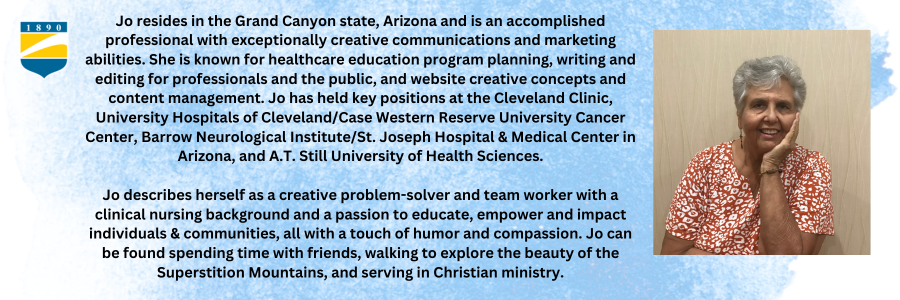Points to Consider if You Are Tired of Nursing
Do you feel like you’re tired of nursing? Have you decided “I’m over it”—working shifts and the stress of direct patient care? You are not alone. Many nurses echo this sentiment.
A 2021 McKinsey survey found that 32% of registered nurses in direct patient care reported being at least “somewhat likely to leave” their job. The nurses surveyed cited some strong factors influencing their desire to leave: “insufficient staffing levels, seeking higher pay, not feeling listened to or supported at work, and the emotional toll of the job.”
Signs That You Are Ready for a Change
How can you tell if you are tired of nursing and ready for a change in your current career?
According to a registered nurse with a Master’s in nursing leadership, some of the common signs to stop bedside nursing comprise the following:
- Burnout and stress from patient care overload, long hours, alternating work shifts, and emotional stress from dealing with both patients and family members
- The desire for less direct patient care interaction or another type of interaction
- Physical demands from working long hours, having an extended time on your feet, and transferring patients
- Decreased job satisfaction and poor outlook for job advancement.
Are you experiencing any of these symptoms? You might be ready to alter the trajectory of your nursing career.
Career Options are Plentiful
There are many career opportunities available where you can use your nursing skills, knowledge, and clinical experience to pivot your career in another direction. The Muse cites some of these career-change jobs as health educators, nurse case managers, healthcare recruiters, legal nurse consultants, and numerous others. Many of these jobs can provide more personal time and flexibility in your schedule.
Consider a Career as a Legal Nurse Consultant
If you are tired of nursing, think about redirecting your career by becoming certified as a legal nurse consultant (LNC). LNC careers are high-paying and in demand throughout the country. LNCs work as consultants in areas that relate to the intersection of healthcare and legal matters. According to nurse.org, LNCs are described as, “RNs who work with lawyers, healthcare organizations, insurance companies, and other legal professionals to consult as expert medical witnesses in medical cases, such as worker’s compensation, medical malpractice, or other personal injuries while on the job.”
Why Choose a Career as an LNC?
Due to the increasing amount of attorneys working in the U.S., LNCs will be in demand because of their medical knowledge and clinical expertise. Choosing to redirect your nursing career by becoming an LNC can be a great career option.
Another reason to think about a career as an LNC is the salary range. Payscale.com reports that the average annual salary for a legal nurse consultant in 2024 is $88,126. According to Glassdoor, the total pay range for legal nurse consultants is around $90,000 to $143,000 per year. Legal nurse consulting is among the highest-paying nursing specializations in the nursing field. Of course, the amount of compensation you can expect varies depending on the state you work in, the type of organization where you are employed, and whether you are self-employed as an LNC.
As a nurse, some of the nursing skills that you can transfer to a career as an LNC, according to nurse.org, include:
- Research ability
- Ability to read and interpret medical records
- Experience supporting patients in the healthcare field
- Familiarity with the policies and procedures regarding patient care
- Thorough knowledge of medical terminology
Completing training to become an LNC has challenges, but there are potential personal and professional benefits to consider. As an LNC, you could have the freedom to create your work schedule, have the option to work independently as a consultant, and have increased income and less stress.
What Education Will I Need?
All LNC programs are not alike and may not be credentialed. Be sure to enroll in a training program with a school like Blackstone Career Institute (BCI) that is accredited and whose coursework meets the requirements to sit for a legal nurse consultant certification exam. Accreditation means that the institution has met the required educational standards to provide the coursework and correct training to prepare students for their chosen careers. Find out what the school does to prepare students to take the certification and licensing exams required for certification.
BCI’s online Legal Nurse Consultant program meets the clock hours required to test for the LNCC® certification offered through the American Legal Nurse Consultant Certification Board (ALNCC). Qualified Registered Nurses (RNs) with an Active Registered Nurse license without restrictions and who have 3-5 years of nursing experience are qualified to enroll in this program. BCI’s LNC program takes 8-14 months to complete on average.
Organizations that can help you determine if an LNC career is right for you and what schools lead to certification include:
- American Association of Legal Nurse Consultants
- National Alliance of Certified Legal Nurse Consultants
- International & American Association of the Legal Nurse Industry
Tune In to You
If you have decided that you are tired of nursing and ready for a new career, take the time to evaluate what is next in your career direction and consider all the options available to you.
- Make a list of your nursing skills and how those would be useful and transferable to an alternate career.
- Be sure to incorporate your skills and relevant certifications into your updated resume for the industry you are targeting, and integrate industry-specific keywords.
- Consider what you are passionate about and what drives you.
- Research what additional training or education that you will need.
Written by Jo Gambosi


Disclaimer: Blackstone Career Institute, an accredited school, cannot guarantee employment, job promotion prospects, or income increases.













